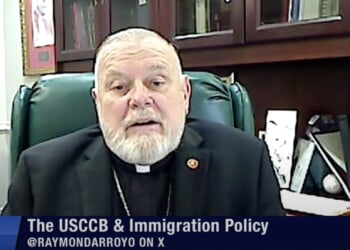Government, successive governments, have fallen far short when it comes to defending and protecting young, white, working-class girls, groomed and targeted for the sexual exploitation of men from Asian or Pakistani backgrounds. It has been, in my view, a disgusting derogation of responsibilities – and, without swift action, government may fall short yet again.
“Each investigation will call witnesses to give evidence and will require records to be submitted. Local authorities, police forces and other relevant agencies should in the meantime be required not to destroy any relevant records.”
That is on page 151 of Baroness Casey’s near 200-page audit into the grooming gang scandal. The audit, commissioned by Sir Keir Starmer after accusing those supporting a national grooming gang inquiry of “jumping on the bandwagon of the far-Right”, which then went on to conclude an inquiry was in fact necessary.
Labour says it is now launching a national inquiry, but according to Casey’s official document, it will coordinate “a series of targeted local investigations”. The precise running of these urgently needs to be set out as it risks compromised local council cover-ups.
Casey’s audit itself notes that some local areas are already showing “resistance” and “reluctance” to “conduct reviews or establish an inquiry”, with officials claiming that “practice had improved or that issues had been ‘covered elsewhere’”.
That she had to spell out that the Government needs to enforce councils and police forces not be shredding incriminating documents is quite something, although hopefully having full statutory inquiry powers will stop anything of the sort.
But local authorities have shown they shouldn’t necessarily be trusted to run their own inquiries. Look to Telford and that is made clear. Its Labour MP Shaun Davies yesterday tried to condemn both Rishi Sunak and Amber Rudd for “refusing to provide a statutory inquiry into” grooming gangs in Telford when, as leader of Telford and Wrekin Council in 2016, Davies himself signed a letter calling for the then-prime minister and home secretary to reject calls for an inquiry into child sexual abuse in the town.
It is thanks to courageous victims, alongside brave whistleblowers like Maggie Oliver and Jayne Senior, not local authorities, that we know anything near to the extent we do.
“Despite reviews, reports and inquiries raising questions about men from Asian or Pakistani backgrounds grooming and sexually exploiting young White girls, the system has consistently failed to fully acknowledge this or collect accurate data so it can be examined effectively. Instead, flawed data is used repeatedly to dismiss claims about ‘Asian grooming gangs’ as sensationalised, biased or untrue.”
That is from Chapter 6: Denial, on page 121, explaining what Casey branded as a “misleading” portrayal of the situation based on what has been revealed to be poor quality, not properly collected data.
The flawed collection of data has led to the ethnicity of the majority of perpetrators (two-thirds) still not being recorded, with the issue being “shied away from” across the country, Casey’s audit concludes – and it confirms some responsible authorities wanted to avoid the topic of ethnicity of offenders altogether “for fear of appearing racist” or “raising community tensions”. (In the areas where data was available across three police forces, however, there was enough evidence of disproportionate representation of Asian and Pakistani men to “at least warrant further examination”.)
The flawed presentation of data has led to sham reports like that from the Home Office in 2020, once quoted as gospel truth to downplay reports of ‘Asian grooming gangs’ as sensationalised or untrue, claiming that “it seems most likely” the ethnicity of most group-based child sexual exploitation offenders are white – but of which Casey wrote she found “hard to understand how the Home Office paper reached that conclusion, which does not seem to be evidenced in research or data”.
The flawed interpretation of incomplete and unreliable data has led to claims of an “overwhelming problem with White perpetrators when that can’t be proved”, the Casey audit reads. These are the audit’s stats: of the 50 local child safeguarding reviews listed ‘where perpetrator ethnicity and/or nationality identified’, just one describes them as solely white, while 10 mention Asian perpetrators of one kind or another. Another 35 of these reviews are left with “not stated” under perpetrator’s ethnicity and/or nationality.
Why was the hard data so flawed in its collection and recording? With complicating factors of ethnicity and culture, if information seems to have been deemed too incendiary to then be suppressed, it does no one any favours. Nor, however, do comments like that of Lucy Powell, Leader of the Commons, who accused Tim Montgomerie (founder of this parish) of “dog whistle” politics when he brought up the subject on BBC Radio 4’s Any Questions?
If, as the audit reads, asylum seekers and foreign nationals are involved in a “significant proportion” of live police investigations into child sex grooming gangs, people need to get over being uncomfortable with the data and read it as fact.
It took Starmer having to see an official audit before making a decision on an inquiry; setting out stark details with immovable numbers makes it difficult to escape from. There is a reason Casey recommends that ethnicity and nationality data be captured as a matter of course. Her audit found official reports on child abuse displayed “palpable discomfort” at the mention of ethnicity, either avoiding references entirely or referring to it in “euphemisms such as ‘the local community’”.
“To prevent it we have to understand it,” the report reads. Sadly, it is often harder to hide from trends and patterns in data than it is to bat away those courageous women who spoke out – and we must make sure that the previous sham of data or record collection does not continue to harm them any further. Not protecting records or collecting ethnicity data would only further run the real risk of making the problem worse, again.


![Former Bravo Star Charged After Violent Assault Using a Rock-Filled Sock in Tennessee Walmart [WATCH]](https://www.right2024.com/wp-content/uploads/2025/07/Former-Bravo-Star-Charged-After-Violent-Assault-Using-a-Rock-Filled-350x250.jpg)




![Karoline Leavitt Levels CNN's Kaitlan Collins and Other Legacy Media Reporters [WATCH]](https://www.right2024.com/wp-content/uploads/2025/07/Karoline-Leavitt-Levels-CNNs-Kaitlan-Collins-and-Other-Legacy-Media-350x250.jpg)
![Man Arrested After Screaming at Senators During Big Beautiful Bill Debate [WATCH]](https://www.right2024.com/wp-content/uploads/2025/06/Man-Arrested-After-Screaming-at-Senators-During-Big-Beautiful-Bill-350x250.jpg)

![Illegal Alien Walked Free After Decapitating Woman, Abusing Corpse for Weeks [WATCH]](https://www.right2024.com/wp-content/uploads/2025/07/1753013138_Illegal-Alien-Walked-Free-After-Decapitating-Woman-Abusing-Corpse-for-350x250.jpg)





